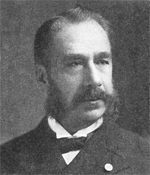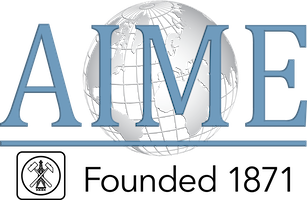
John Birkinbine
In 1844, the year John was born, his father, Henry P.M. Birkinbine, was operating a forge and auger works near Reading, PA. Later, his father served for 10 years as chief engineer of the Philadelphia Water Department. The son got some of his early experience as an engineer in various water supply projects in and around Philadelphia, and the firm, perhaps because of its expertise, became involved in many water projects around the country in the late 19th century, as part of the drive for improved public sanitation.
The Birkinbine firm also specialized in mining engineering, both in the United States and Mexico. John Birkinbine was, in the 1870s, reportedly the first American to critically examine the iron deposits of the Cerro de Mercado in Durango. He was also one of the first engineers to suggest the practicability of making iron on the Great Lakes from coke made from Pennsylvania coal. He also experimented with the use of various fuels, from charcoal to coke, to smelt iron.
Birkinbine's interest in manufacturing pig iron from charcoal and his knowledge of hydraulics contributed to a concern for the condition of forests in Pennsylvania. He was one of the founders of the Pennsylvania Forestry Association, a fact which provides a clear connection with Lehigh University. Henry Sturgis Drinker, president of Lehigh from 1905-1920 and both a lawyer and an engineer by training, had the same interest and was also one of the founders of the Association.
Among John Birkinbine's distinctions were two terms as president of the American Institute of Mining Engineers, founding member and secretary of the United States Association of Charcoal Iron Workers, and long-time editor of its journal, and service with the U.S. Geological Survey. In this capacity he was the Survey's expert on iron ores.
After John Birkinbine's death, the firm continued under his sons, but it seemed gradually to lose its energy. By the time World War II came along, the business was defunct. An extensive collection of papers dating back to the mid-1800s was donated by his descendants to Lehigh University.

